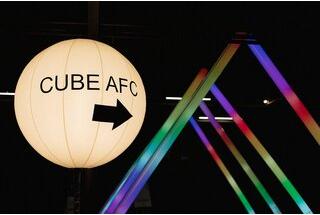What Bertrand Tavernier loved was the cinema !
By Alain Choquart, cinematographer and directorThe following year, Bertrand and his co-director, Robert Parrish, took a small group of us along to film a 35mm documentary : Mississippi Blues. Robert Parrish had been John Ford’s editor, and had directed films with Robert Mitchum, Gregory Peck, Rita Hayworth, John Cassavetes… He welcomed us in New York before we left together for the South. The hotels were full. Parrish had found us rooms by pretending that we were members of a French religious congregation. We had to double up in the rooms. I shared with Bertrand… the feeling of a student who finds himself stuck with the teacher on a school trip ! We’d spent over two months in Senegal together on Coup de torchon, but the intensity of the work and the amount of time that Bertrand spent with his many actors had not really enabled us to become close with one another. Once we arrived in the room, Bertrand turned on the television set and we spent a good part of the evening looking for bits of films on American television.

Finally, that night set the tone for our future work together on about a dozen films. We never shared a room together again, but I spent hours watching films that Bertrand had recommended to me, or leaving his house from a work meeting or a friendly lunch with a DVD, CD or book (usually in English) in every pocket… listening to him recount the story of unavailable films in their entirety… finding a single scene in a film he found bad that made it worth watching the entire thing…
His curiosity and love for the cinema, above all, because cinema enlightens our understanding of the world, just as literature does.
The next part of our adventure was long and I cannot resolve myself to summarize it in these lines. But, during the last few days, it suddenly became too short.
The pleasure, and perhaps the luck, I had in working with Bertrand goes beyond the normal collaboration between director and cinematographer. It was the absolute trust with which he would offer me the image of his films the way that actors are offered a role. A work of interpretation. He wanted to be surprised. He wanted to be “astonished” [épaté] by those who worked with him.
It is a heavy load to bear when a director asks you to push the envelope. I remember the dailies from the first weeks of L.627. The crew left every night after the screening without saying a word. Their silence filled me with doubt. And one Friday evening, while I was clambering onto the back of the motorbike belonging to an assistant director who was driving me to the train station, Bertrand passed me a heavy plastic bag. I saw that it was the just-released new edition of the 50 Years of American Cinema he co-wrote with Coursodon. I opened it in the train. There was a note. A full page, better than a signature. Bertrand was encouraging me to continue my work on film in the same direction. It was exactly what he wanted. His way of supporting me was to quietly give me a book at the end of the weekend. So be it ! I got used to his extreme modesty.
His critics had decided that the film was “classic” before even seeing it.
Bertrand later sent me Soderbergh’s interview in which he cited L.627 as a source of formal inspiration for Trafic… To each his own…
Bertrand Tavernier was disdained by those who had decided that he didn’t belong to their group. But those who knew him knew that he claimed membership in no group ; he believed there was no worse thought than one that excludes, and that sometimes, it was necessary to speak for those without a voice.
What Bertrand loved was cinema !
Alain Choquart, 28th March 2021
The thumbnail image above shows Bertrand Tavernier holding a text by Hubert Mingarelli (deceased in early 2020) adapted for the stage by Didier Bezace, who passed away a year ago and who starred in L.627 - Photo Lise Lévy
In the gallery below, a few images on location of Bertrand Tavernier’s films
Archives Alain Choquart
Translated from French by A. Baron-Raiffe
 En
En Fr
Fr






